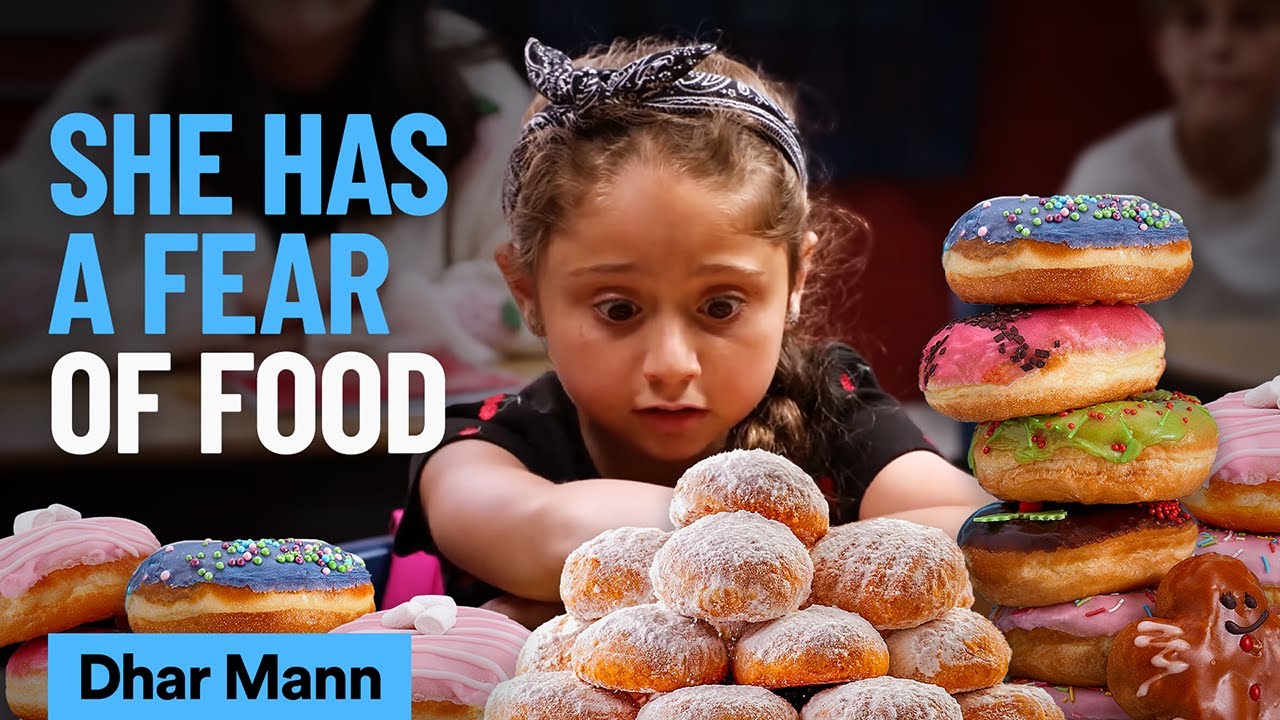What is ARFID? Information and details on ARFID behaviour, causes and treatment.
Summary
TLDRAlfred, or Avoidant/Restrictive Food Intake Disorder (ARFID), is a mental health issue causing individuals to restrict their diet due to fear of consuming foods outside their 'safe' group. Recognized in the Diagnostic and Statistical Manual of Mental Disorders, Alfred is not a lifestyle choice but a disorder requiring professional help. The video provides insight into the disorder's behavior, causes, and treatment options, emphasizing the importance of understanding and support for those affected.
Takeaways
- 🍽️ Alfred is a recognized eating disorder officially listed in the Diagnostic and Statistical Manual of Mental Disorders since 2013.
- 😨 Individuals with Alfred have a restricted diet due to fear of eating outside their 'safe' group of foods, often leading to anxiety or physical reactions.
- 👶 Alfred typically manifests in children between the ages of 0 and 4, often triggered by early childhood experiences with food.
- 🚫 The disorder is not a lifestyle choice but a mental health issue requiring professional help for recovery.
- 🍰 People with Alfred may have many food rules and a heightened sensitivity to the taste, smell, and texture of food.
- 🥗 The typical Alfred diet consists of bland, beige foods, often lacking in nutritional variety and leading to health issues.
- 👨⚕️ Professional psychological help is crucial for overcoming Alfred, with various therapies available such as CBT, FBT, and specialized protocols.
- 🌐 Alfred affects not only eating but also social situations like birthdays, school camps, and family dinners, causing stress for the individual and their family.
- 🌐 Untreated, Alfred rarely corrects itself and can impact various aspects of life, including relationships and work.
- 🌟 There is hope for change; specialized therapy protocols have shown high success rates, with over 90% for adults and 65% for adolescents and children over 8 years old.
- 📚 Education about Alfred, understanding the mind-body connection, and hypnosis are key components in the successful therapy protocol pioneered by a clinical psychologist.
Q & A
What is Alfred?
-Alfred stands for Avoidant/Restrictive Food Intake Disorder (ARFID). It is a recognized eating disorder characterized by a restricted diet due to a fear of eating outside a person's 'safe' group of foods.
How is Alfred different from other eating disorders like anorexia and bulimia?
-Unlike anorexia and bulimia, which are often driven by negative body image, Alfred is not about body shape or weight. It is a fear of new foods and the person with Alfred is not consciously in control of their behavior around food.
When was Alfred first recognized as a disorder in the Diagnostic and Statistical Manual of Mental Disorders?
-Alfred was listed as a recognized eating disorder in the Diagnostic and Statistical Manual of Mental Disorders (DSM) in 2013.
What are some common behaviors associated with Alfred?
-People with Alfred might have a restricted number of foods they will eat, experience anxiety or nausea when trying new foods, and may have specific food rules. They often have a diet consisting of bland, beige foods, sometimes referred to as the 'toddler diet'.
Can you describe the typical diet of someone with Alfred?
-The diet of someone with Alfred is typically made up of bland, beige foods, refined carbohydrates, high-sugar foods, and processed meats. It often lacks fresh fruits, vegetables, and limited protein choices, leading to nutritional challenges.
How does Alfred affect a person's life beyond just their diet?
-Alfred can cause difficulties in social situations involving food, such as birthday celebrations, school camps, and family dinners. It can also lead to feelings of embarrassment and being different, affecting relationships and work opportunities.
What are some potential triggers for the development of Alfred in children?
-Triggers for Alfred in children can include colic, reflux, choking, vomiting, food allergies, bouts of gastroenteritis, negative reactions to medication, and more. These experiences can lead the child to associate food with distress.
Can Alfred be treated, and if so, what are some of the therapies used?
-Yes, Alfred can be treated. Therapies include Cognitive Behavioral Therapy (CBT), Family-Based Treatment (FBT), food therapy, SOS therapy, dietitian advice, and nutritional supplements. A specialized therapy protocol developed by Felix Economakis has shown success with a high rate of clients treated.
What is the success rate of the specialized therapy protocol for Alfred developed by Felix Economakis?
-The therapy protocol developed by Felix Economakis has a success rate of over 90% for adults and a 65% success rate for adolescents and children over 8 years old.
How does the therapy protocol by Felix Economakis work?
-The therapy involves educating the client about Alfred and the psychological and physiological factors contributing to it. It uses hypnosis to communicate change to the inner part of the client's mind, aiming to reduce fear and change behavior.
What is the role of the specialist hypnotherapy clinic in Melbourne, Australia, in treating Alfred?
-The specialist hypnotherapy clinic in Melbourne, Australia, uses the specialized Alfred therapy protocol to help clients overcome their restrictive eating behavior. It offers alternative therapy options for children under eight years old.
Outlines

Этот раздел доступен только подписчикам платных тарифов. Пожалуйста, перейдите на платный тариф для доступа.
Перейти на платный тарифMindmap

Этот раздел доступен только подписчикам платных тарифов. Пожалуйста, перейдите на платный тариф для доступа.
Перейти на платный тарифKeywords

Этот раздел доступен только подписчикам платных тарифов. Пожалуйста, перейдите на платный тариф для доступа.
Перейти на платный тарифHighlights

Этот раздел доступен только подписчикам платных тарифов. Пожалуйста, перейдите на платный тариф для доступа.
Перейти на платный тарифTranscripts

Этот раздел доступен только подписчикам платных тарифов. Пожалуйста, перейдите на платный тариф для доступа.
Перейти на платный тарифПосмотреть больше похожих видео

Avoidant/restrictive food intake disorder (ARFID) Signs & Symptoms

6 Types of Eating Disorders

OPENING UP ABOUT MY EATING DISORDER | Avoidant Restrictive Food Intake Disorder (ARFID)

8-Year-Old HAS A FEAR Of ALL FOOD (ARFID) | Dhar Mann Studios

PHOBIA SOSIAL || Film Pendek (Gangguan Mental)

Eating Disorders: What Are They?
5.0 / 5 (0 votes)
